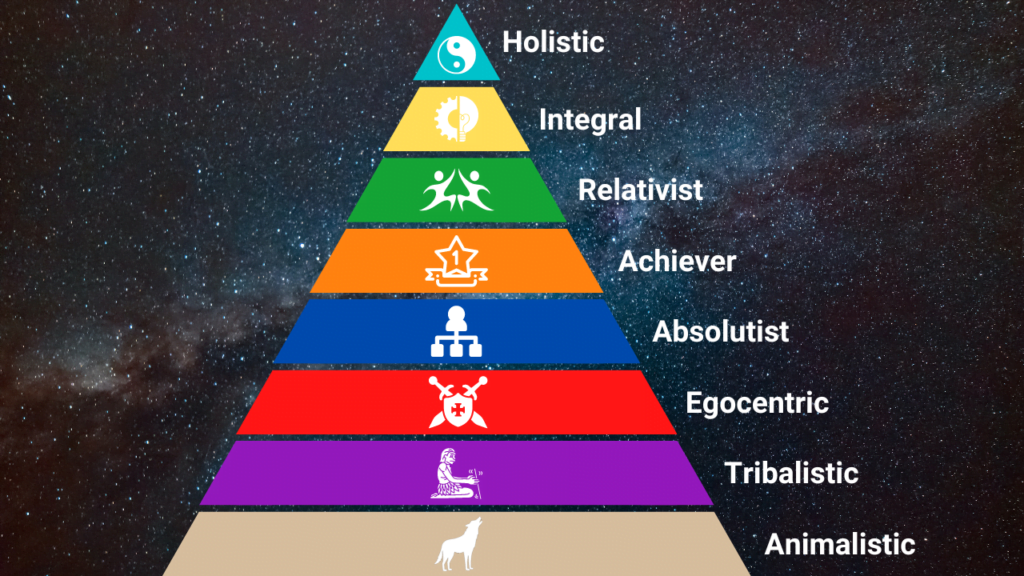Spiritual Awakening: What Stage Are You In? (Quiz)
Take the free spiritual journey quiz below to find out what stage you’re at. Spiritual awakening is a highly individualized and subjective process. There is no perfect model or method for awakening and most people don’t know where they are or where they could be in their spiritual development. However, there are several distinct stages that most seekers must go through in their spiritual journey. Here are the 6 stages of spiritual awakening: These stages are modeled after the 10 ox herding pictures of Zen Buddhism that represent the stages of awakening. Although everyone’s spiritual journey is different, there is a generally well-documented path toward awakening and enlightenment. The 6 Stages of Awakening Stage 1 – Asleep At this stage you are completely asleep and not even aware that something greater may possibly exist. You’re just living your life as most people do. Those in stage 1 may associate spirituality with religion and dismiss the possibility of divinity outside of a religious ideology. There is nothing inherently wrong with being in this stage, and many people who stay in stage 1 are able to live happy and purposeful lives. This is where everyone begins their journey, unaware of the profound and infinite rewards of the path toward awakening. Stage 2 – Spiritually Curious In stage 2 spiritual curiosity begins. You begin hearing about spiritual awakening and may feel like something is “off” about reality. This leads to greater openness to the possibility of something greater and increased inquisitiveness toward spirituality. People in stage 2 are often intrigued by general philosophy, eastern spiritual teachings, and the nature of reality. You see the possibility of something greater in this stage but are unable to actually know it for certain. People in stage 2 lack the first awakening experience necessary to fuel their desire to go “all in” on the spiritual path. Later in stage 2 you may become very intrigued with the idea of “waking up” and pursue spiritual philosophy more intensely. potential trouble spots Stage 3 – The First Awakening > see also “What Is A Spiritual Awakening” In this stage, you experience awakening for the very first time, although it may only be for a few minutes or even just a couple of seconds. After your first experience with awakening, an internal fire is ignited inside of you. The desire for the spiritual path takes hold as the profound experience of spiritual truth dawns on you for the first time. This stage can come as a great relief for spiritual seekers who have been antsy to see what all the hype was about. After your first glimpse at awakening, you now know that the spiritual path is worth pursuing. This stage begins with an awakening, or profound experience of divine truth, and continues with a deep desire for more spiritual fruits. potential trouble spots Stage 4 – Growth & Plateau Stage 4 is the troubleshooting phase. You may have several sporadic awakenings spread out through this phase, but you don’t entirely know how to access them consistently. This stage is less about a fiery passion that arose in stage 3 and is more about commitment to the spiritual path and steady learning. Many spiritual roadblocks will be encountered and overcome during the growth and plateau phase. Stage 4 is called “Growth & Plateau” because of the series of spiritual plateaus and then growth that accompanies the transcendence of those plateaus. This is one of the longest stages out of the 6. potential trouble spots Stage 5 – Integration As you continue to raise your consciousness you begin to find a deeper sense of sacredness in every aspect of life and reality. As you raise your consciousness higher and experience more spiritual truth, you’ll begin to integrate what you’ve experienced into everyday life. Every moment becomes rich and full of meaning in this stage. This isn’t to say you’ll be free of suffering, but meaning and grace are found even in your suffering and negative experiences. All of your previous awakenings and the spiritual truth you have accumulated in previous stages come together in this stage. This stage is about dissolving the separation between your spiritual self and your regular everyday self. In the integration stage, you begin to live your every day as if it is divine. Spiritual truth permeates your reality and experiences. Throughout this stage there is an ongoing commitment to spiritual growth and self-discovery. potential trouble spots Stage 6 – Transcendence Transcendence is the 6th and final stage of awakening. This stage is about leaving behind the idea of a separate self. In stage 6 you become both simultaneously detached and more deeply connected with the world around you. Stage 6 is a nondual stage, meaning your understanding of reality and of yourself is holistic and complete within the universe. You transcend the identification with a separate human ego and understand directly that you are an inseparable aspect of all that exists. In stage 6 you understand the highest truths of the universe and have direct access to the divinity of the universe. Notable examples of people who were in stage 6 include: Neem Karoli Baba, Ram Dass, Alan Watts, & Eckhart Tolle So What Do I Do next? Congratulations! Now you know what stage of your spiritual journey you’re in. With this knowledge you can see what stage is next for you and what potential trouble spots you may encounter trying to get there. It’s important that you have a baseline for where you’re at and where you’re going. Otherwise, you’re wandering through the spiritual path in the dark. Find a guru If you genuinely want to go all in on this journey towards awakening you may want to find a spiritual mentor. A guru can help guide you on your journey towards awakening. A guru may also be able to expedite or accelerate your spiritual growth, as they’ve done most of the hard work already and can share this with you. > see my
Spiritual Awakening: What Stage Are You In? (Quiz) Read More »



